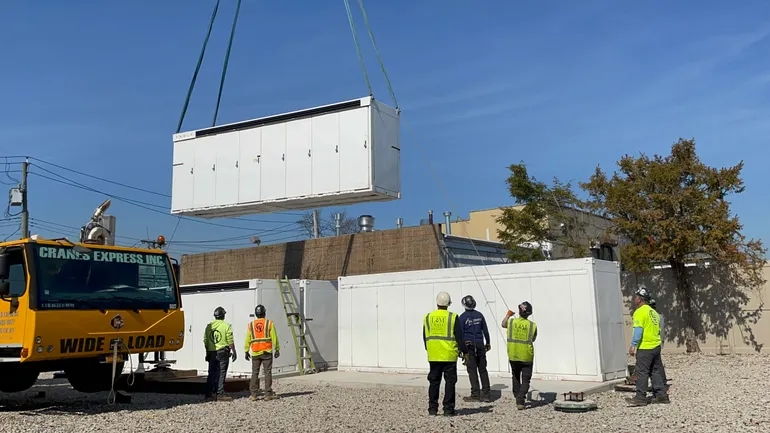New York launches 1 GW bulk energy storage solicitation using new credit

- The state of New York announced its first bulk energy storage solicitation on Monday, issuing a request for proposals to procure a total of 1 GW from storage developers as part of a state goal to deploy 6 GW of energy storage by 2030.
- The New York State Energy Research and Development Authority is employing a system of index storage credits adopted last year and partially modeled on the state’s renewable energy certificates. One ISC is equivalent to one MWh of discharge capability per day, according to the RFP.
- “This is one of the largest energy storage procurements in the nation, and it's coming at a time when a lot of states may be walking away from a lot of their clean energy goals,” said Kristina Persaud, who leads Advanced Energy United's policy initiatives in New York. “I think it sends a really clear market signal to developers that New York is serious about affordable clean energy … [and] staying the course in the long term.”
A statement from Governor Kathy Hochul described the ISC as a “market-based mechanism that gives project owners greater revenue certainty while incentivizing them to participate in wholesale energy and capacity markets.”
NYSERDA said in a release that its goal in adding bulk energy storage to New York’s grid is to “lower costs, optimize the generation and transmission of power, enhance energy grid infrastructure, and ensure the reliability and resilience of the state’s electricity system.”
The storage projects that bid into the solicitation will have to meet new storage safety codes adopted last week by the State Fire Prevention and Building Code Council. Although the changes won’t formally take effect until Jan. 1, NYSERDA has “already integrated these recommendations into its residential, retail, and bulk energy storage programs.”
Six of the city’s former fire safety leaders praised that decision in a Monday letter, calling energy storage “key” for grid reliability and concluding, “With the updated protections, New Yorkers can be confident in the safety of battery energy storage.”
New York has seen protests over planned battery facilities in recent months, CBS News reported in March, with residents raising concerns about the fires that lithium ion batteries can cause. A January fire destroyed most of a 300-MW battery array at Vistra Energy’s 750-MW Moss Landing Energy Storage Facility, and e-bike battery fires killed 18 people in New York throughout 2023.
Projects that submit safety and security screenings including “more comprehensive explosion control designs and fire safety measures incorporated into the proposed project site … will be preferentially evaluated,” said the RFP.
Shawn Kelly, United’s energy regulatory policy director for the eastern U.S., called New York “a leader in best practices that other states can look to” in terms of energy policy.
“With open hostility to clean energy at the federal level, we know that it's time for the states to step up,” he said. “And there's so much ability within the utility regulatory commissions at the state level to create programs like this, and we do see it as a model.”
Peter Ross, an energy and climate attorney with Foley Hoag, said that at a time when the Trump administration “is actively undermining New York’s renewable energy and climate goals,” the “market-making storage RFP is a bright spot both for state policymakers and market participants.”
Persaud praised the solicitation as an example of the New York Public Service Commission’s work, saying the PSC “has been very great about carefully working with stakeholders to get things right.”
“These aren't rushed efforts,” she said.
Kelly echoed this, saying New York is “one of the best” in terms of stakeholder outreach.
They offer “a lot more compared to a lot of other states in how you can give input to the commission and put it on the public record,” he said, adding that the PSC has an expert and large staff that “truly [does] read through all those comments.”
“You'll see that reflected in their final decisions a lot of times, and they tend to do a really good job of addressing all the different viewpoints too,” Kelly said. “So it's pretty transparent why they rule a certain way.”
Storage developers who want to bid projects into the solicitation must submit an eligibility application to NYSERDA by Sept. 4.
utilitydive





